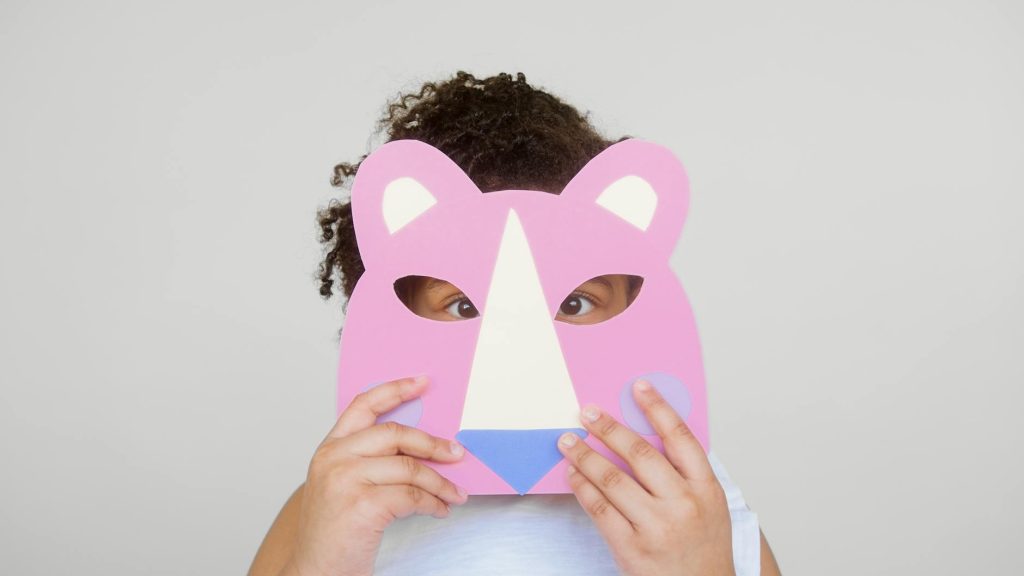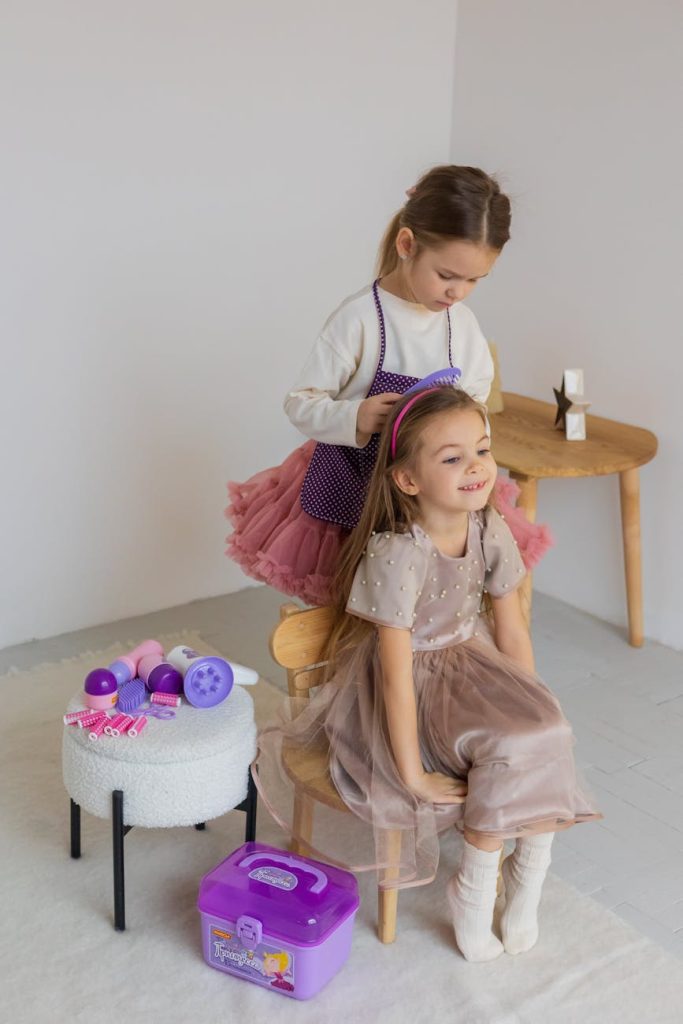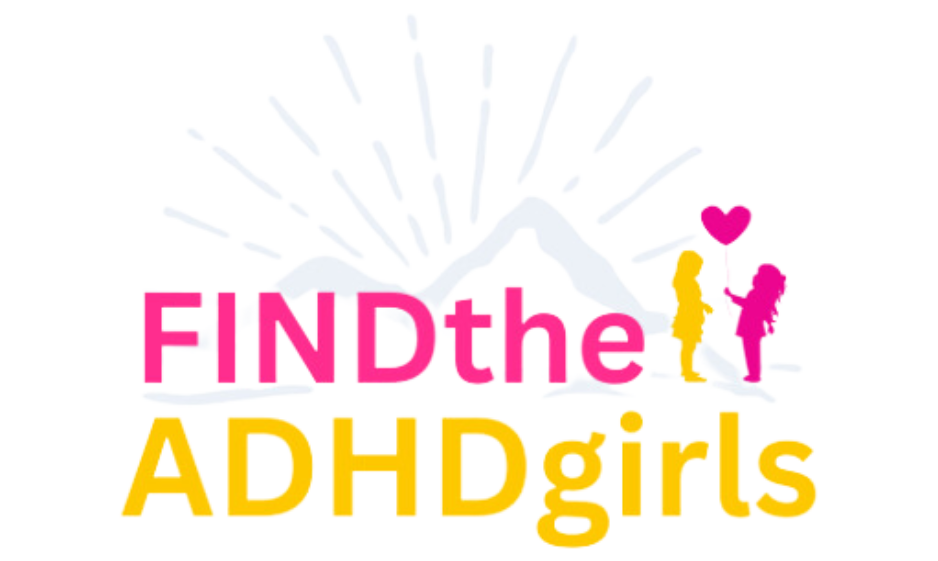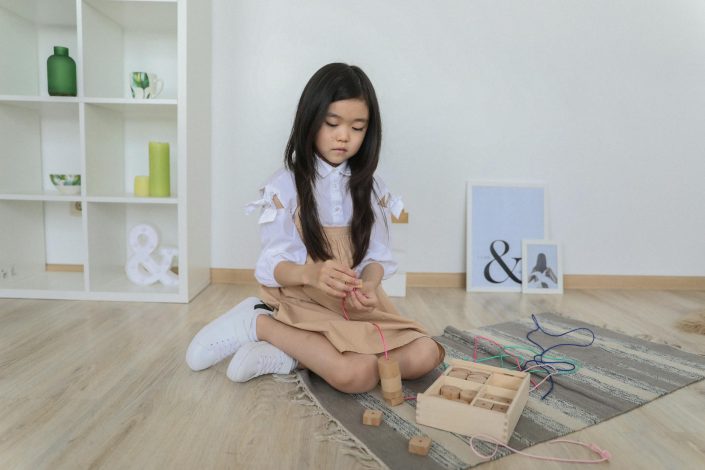Even if your daughter is outgoing and friendly, ADHD and social rejection in girls is a real and often hidden issue. Her ADHD can cause her to struggle socially in ways that aren’t always obvious. If it seems like she’s isolated from her classmates or one step behind in social situations, she probably is. Trust your gut. Even girls who seem like they’re doing fine may be working twice as hard just to seem okay.
ADHD and Social Rejection in Girls
Over 50% of children with ADHD have trouble making and keeping friends. Other kids pick up on subtle differences quickly and reject ADHD kids who don’t “get it.” They’re excluded from birthday parties and playdates and picked last for teams. But, if your daughter struggles socially, she may not want you to know. She feels uncomfortable in social situations, and she doesn’t understand why.
Girls naturally want to be like other girls and fit in. But a lot of them don’t know they have ADHD, and at that young age, they don’t know that they’re different. They’re not aware that they are making so much effort. They just feel discomfort, anxiety, and exhaustion.
~Dana Dzamic, ADHD consultant and coach
If your daughter struggles socially, she may internalize her feelings and keep them to herself out of embarrassment. If that’s the case, you’ve got to be a detective to find out what’s going on. And that’s what this blog is about: how ADHD affects her social skills and what that can look like in real life. Because even when the signs are subtle, they’re there.
Lagging Social Maturity
Girls with ADHD often lag behind their peers by up to 30% in certain developmental areas, including emotional regulation and social maturity. That means your 8-year-old might behave more like a 5- or 6-year-old socially. And while that’s developmentally appropriate for her brain, other kids may not see it that way. They sense something is “off” about her—and unfortunately, kids notice those differences way earlier than adults do.
Executive Dysfunction and Social Skills
ADHD also impacts executive function skills, like working memory, impulse control, and self-monitoring. These skills are essential to understanding and navigating social situations, even as a young child. Girls, especially, are expected to understand and follow complex social rules—but there’s no rulebook. For girls with ADHD, it feels like playing a game where everyone else knows the rules… except them.
“Girls with ADHD have a hard time staying focused on conversations that aren’t intrinsically interesting to them, and it gives the impression that she doesn’t value them, whereas she does.”
~~Mary Ann Richey, ADHD author, ret. school psychologist
Without good executive function skills, your daughter breaks social rules, usually without realizing it. Even with the best intentions, one misstep can lead to rejection. Let’s take a closer look.
Working Memory
Working memory helps hold onto information long enough to use it. For example, it helps your daughter remember someone’s name or what they just said. However, when working memory is impacted by ADHD, she might forget the details of a conversation while it’s happening or completely blank on what someone just said. In the context of ADHD and social rejection in girls, this can make her seem awkward or disinterested to other kids, increasing the risk of being left out.
Task Initiation
Task initiation isn’t just for chores and homework. Starting a conversation, joining a group of people, and sending text messages all count as “tasks.” And that’s hard for girls with ADHD. Your daughter might want to join a group but can’t figure out how. Or she forgets to nurture her existing friendships, and those relationships quietly fade.
Prioritization
In social situations, prioritization helps you decide what’s most important to focus on. For example, your friend’s tone, your own thoughts, the group vibe, or that weird noise in the hallway. Girls with ADHD have trouble filtering what’s important from what’s not. For example, your daughter can get fixated on one comment and miss the rest of the conversation.
Impulse Control
Impulse control keeps you from interrupting people or blurting out anything that comes to mind. Your daughter may lack that control and have trouble waiting for her turn to speak. Or she may excitedly interrupt conversations without realizing it’s rude.
Motivation
Motivation impacts your desire to stay connected with others. Sending the text, showing up, and following up starts with motivation. Socializing is hard work, and your daughter may be reluctant to try, especially if she’s experienced a lot of rejection. She fails to follow through socially, even with friends she cares about.
Planning
Planning helps you anticipate how social situations play out. You have a good idea of what to say, how to behave, and how to keep a conversation going. But in the case of ADHD and social rejection in girls, many struggle because they lack this intrinsic social skill. Girls with ADHD often feel unprepared and have trouble predicting what comes next. They may rehearse conversations in advance, over-prepare out of anxiety, or avoid social situations altogether.
Self-Monitoring
Self-monitoring is like an internal radar for how you come across to others. This is the “I need to stop talking, or that joke landed wrong” part of your brain. But reading the room isn’t your daughter’s strong suit. She talks too much or too loudly and overlooks social and facial cues. Or, she tries to be perfect because she’s anxious and afraid of being “weird” or “too much.”
“I didn’t know how to talk in groups or the rhythm of conversation. And I didn’t understand that a lot of times, people don’t want you to talk for 15 minutes about the thing you’re passionate about.
~Arianna White, counselor for ADHD students
ADHD and the Emotional Side of Socializing
Executive dysfunction is one challenge. ADHD emotions are another. You’ve seen your daughter meltdown over the tiniest things. Just BIG, overwhelming emotions. And when she’s angry or upset, she’ll lash out without thinking. She says hurtful things she doesn’t mean, but her friendships take the hit.

Rejection Sensitivity Dysphoria
Although your daughter’s emotional reactions can seem out of proportion, she isn’t being dramatic. Although nobody likes feeling rejected, girls with ADHD often experience RSD or rejection sensitivity dysphoria. With RSD, rejection can feel like physical pain. It lights up the same pathways in the brain. And it doesn’t even matter if the rejection is real. Even imagined criticism can hurt just as much.
For ADHD girls, RSD might look like:
- A meltdown after a friend doesn’t invite them to play
- Adamantly avoiding a group after being left out once
- An emotional spiral after a teacher corrects them in front of others
Some girls respond to RSD by pulling away completely. The thought is, “If I don’t try, I can’t get hurt.” On the other hand, some girls try so hard to be liked that they lose track of who they are and are willing to accept mistreatment to be part of a group.
Interoception
Interoception is one of the body’s hidden senses, which alerts your brain to internal cues, including things that don’t feel right emotionally. This makes it hard for your daughter to set boundaries, and she can end up in toxic, one-sided relationships.
Your daughter is more likely to accept hurtful comments as the price of admission to a social group. For example, your daughter wants to be friends with the popular girls. They include her, but she’s often the brunt of jokes or teasing. And that’s a common social experience for children with ADHD. According to a recent survey, up to 57% of ADHD kids report at least one episode of peer victimization per week, such as hurtful teasing.
The Cost of Missing Social Connections
Masking
When girls with ADHD struggle to connect socially, they may mask, or hide the parts of themselves they think are “too much.” It’s kind of like putting on a social costume to blend in. Your daughter may mimic how other kids talk, laugh, or play to avoid standing out. She might act more confident or quiet than she really feels.
In the context of ADHD and social rejection in girls, masking becomes a way to avoid being excluded—but it’s emotionally exhausting. She spends her whole day trying to “do it right,” and by the time she gets home, she’s socially burnt out. Perfectionism and masking become a survival strategy; if she’s not liked, it must be because she slipped up. Your daughter may believe that any social mistake or “weird” behavior will make her unlovable. So, instead of learning through trial and error like most kids, she starts playing it safe around others and hiding who she is.

“I’ve seen girls as young as eight and nine who actually start withdrawing from playing with friends, and they can’t explain why. They just know they feel uncomfortable. They don’t know how to manage social situations.”
~~Dana Dzamic, ADHD consultant and coach
The thing is, your daughter’s energy is easily misunderstood by others. She’s trying to put her best foot forward, but other kids see her as trying too hard or annoying. That disconnect is painful. Your daughter starts to doubt herself and internalizes the idea that she’s not acceptable the way she is. Without supportive feedback, like peers who include her or adults who validate her, she may withdraw completely.
Future Risks
Girls especially prioritize social relationships and friendships. So when they struggle to connect, it’s hard and comes with risks. Social bonds are protective, and when your daughter doesn’t have stable friendships or is socially isolated, she can have trouble coping. ADHD kids can get locked in a vicious feed-back-loop of rejection and withdrawal, and their self-esteem suffers. These kids are more likely to abuse substances and develop anxiety, depression, and eating disorders. However, even one close friendship can minimize your daughter’s risks. Studies show that having one friend reduces the risk of getting bullied by other kids. Acceptance by adults also plays a role in her social standing. Your daughter’s self-esteem improves with supportive adults, and classmates view her differently. These protective factors improve her chances to thrive and socially blossom as she grows up.

ADHD Social Struggles Are Real
Long story short, you’re not imagining it. ADHD makes it harder for your daughter to fit in socially and make friends. But it’s not impossible. Not at all. Even one good friend is enough. But she needs your support. Check out how to help your daughter socially to learn how you can help your daughter build social skills and make friends.
About the Author

Alex Alcon
Alex Alcon, RN, Freelance nurse content and copywriter, owner of RN2Pen LLC.

Cynthia Hammer, MSW
Cynthia Hammer, MSW, is an ADHD advocate helping girls get timely diagnoses. She's the founder of FINDtheADHDgirls, Executive Director of Inattentive ADHD Coalition, and author of Living with Inattentive ADHD.
Share via:

